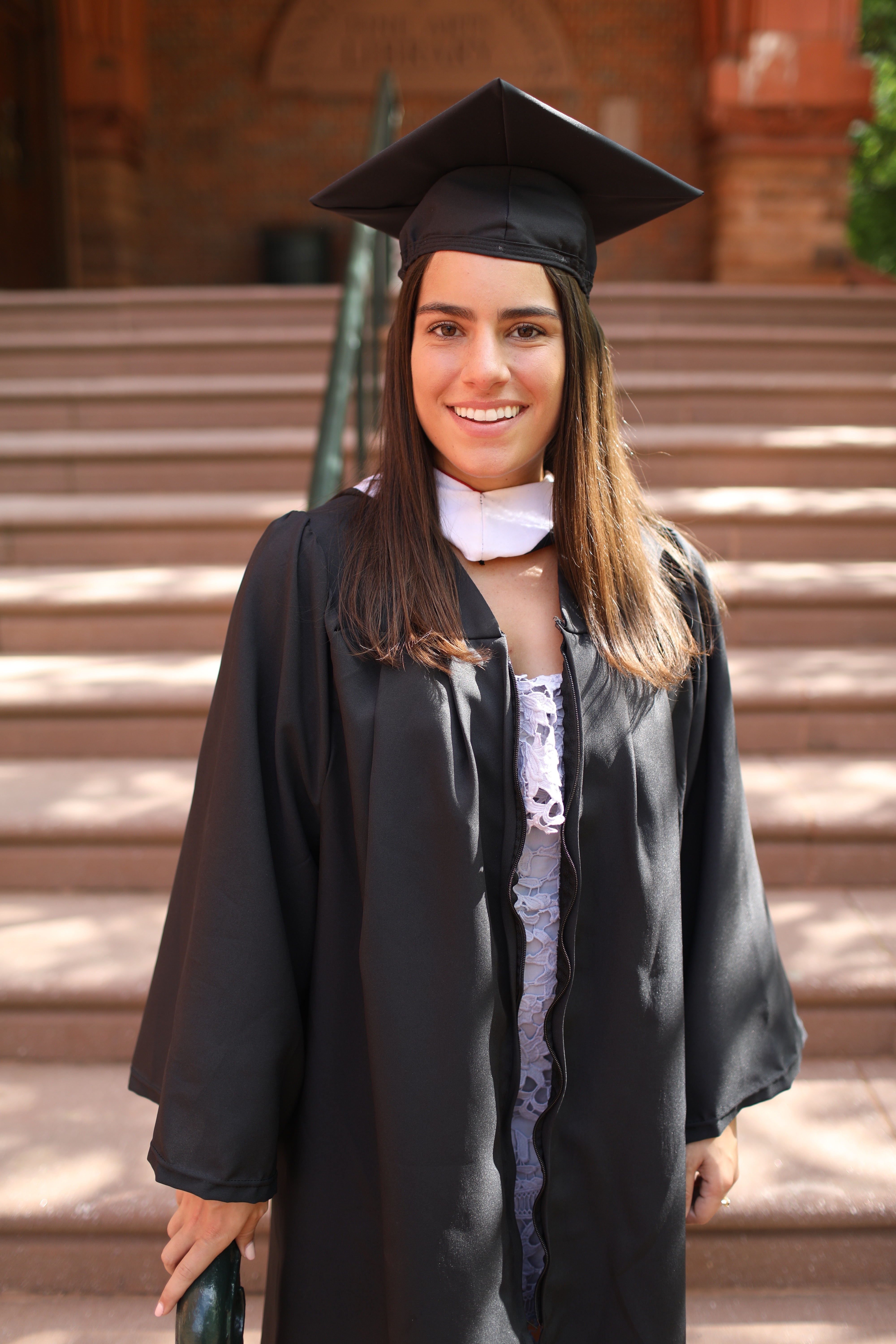OMNIA Q&A: A Movement for Gender Equity in Academia
Kristen Ierardi, C’18, examines a period of bold feminist activism at Penn.
When exploring possibilities for her senior-year independent study project, history major Kristen Ierardi, C’18, sought a topic that combined two of her primary interests: women’s rights and oral histories. A deep dive into archives of The Daily Pennsylvanian and other resources alerted her to a series of landmark events that tackled sexism and inequality on Penn’s campus during the 1970s. Ierardi homed in on three particularly groundbreaking initiatives in her paper, The Impact of Feminist Action at the University of Pennsylvania Between 1970 and 1975: A Story of Consciousness Raising, Public Action, and Lasting Change. The winner of this year’s Gussie Wachs Prize for an outstanding undergraduate research paper in American history, her work illustrates the challenges women faced as both students and faculty members not just at Penn, but at universities nationwide.
Ierardi recently spoke with us about the events outlined in her paper, the trailblazers who spearheaded them, and how they made the University a better and safer place for women.
This first initiative you highlight is the Cohn Report, a 1971 study of the rank, salaries, and promotion of female faculty at Penn. Why was this significant?
This was a massive, first-of-its-kind report that provided hard data on an issue that had never been studied before. The organizers knew women were being treated unfairly and had the foresight to ask the right questions and find results that forced the administration and Board of Trustees to face truths about discrimination that they didn’t want to face. Its impact went well beyond Penn; women at other schools as far as the Midwest and West Coast wanted to read the report and conduct one of their own.
You also tell the story of Phyllis Rackin, a member of the English department who filed a lawsuit after being denied tenure. How did her actions influence the community?
Phyllis Rackin was well-loved by students, had an extensive research portfolio, and was very active in her department. She was denied tenure because of her sex, not because of her work, and a friend encouraged her to pursue legal action. This case was new territory for everyone at Penn, and Professor Rackin eventually won, opening the door for more women to climb the ranks.
Phyllis still works at Penn as an emerita professor, and I met with her last fall and asked why she stayed after fighting such an uphill battle. “Why wouldn’t I?” was her response. The fact that she has persevered for so long is really powerful.
The last event you analyze is a four-day anti-rape sit-in that followed a string of sexual assaults on campus in 1973. What were the participants fighting for?
Rape and sexual assault were chronic problems that became more obvious in the ’70s as women started to become a large part of the University’s residential community. Hundreds of women joined the sit-in to demand things like more lighting and telephone systems, safer bus transportation, a female security specialist, more women gynecologists in Health Services, free self-defense classes, and the publication of rapes that occurred on campus. Although most of the demands were met in the end, the event revealed the administration’s frustrating lack of regard for women’s safety. The general sentiment was best captured by a board member who discouraged adding lights to Locust Walk because they could harm its aesthetic.
How did the women in your paper shape the experiences of women who attended or worked at the University after they did?
Women at Penn have always been brilliant, driven, and accomplished, but the environment created a sense of doubt and insecurity, and the actions of these women significantly lessened that. Inequality did not end with these gains for women—and problems with sexism still persist in various ways today—but those who came to Penn in the 1980s and later were more confident they could achieve the same things their male counterparts were achieving.
What is the main takeaway you’d like readers to get from your project?
I’d want them to recognize the power of individuals to achieve lasting and impactful change. These women didn’t start out with a lot of money or connections, but by putting a lot of time, effort, energy, and dedication into something they cared about, they were able to change an entire campus and other campuses around the nation.
What are your plans now that you’ve graduated?
I want to go to law school and am spending this summer working in the litigation department at a law firm in New York.



